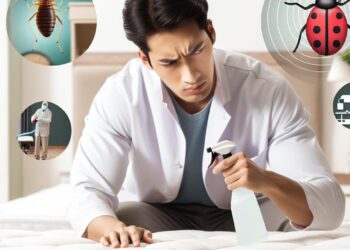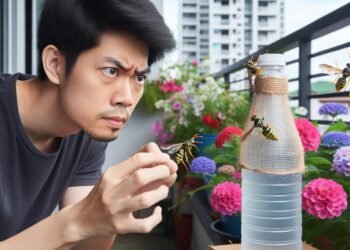Introduction
Pests can cause significant damage to the environment, human health, and the economy. Therefore, effective pest control measures are essential to preserve the environment and maintain a sustainable ecosystem. In this article, we will explore the critical role of pest control in preserving the environment and how it can help to prevent environmental damage.
The Importance of Pest Control:
Pest control is crucial for many reasons. Firstly, pests can cause significant damage to crops, gardens, and forests, leading to significant losses in the agricultural sector. This damage can lead to food scarcity and higher prices, which can affect the economy and the environment. Secondly, pests can spread diseases to humans, animals, and plants, leading to health and environmental problems. For example, mosquitoes are notorious for spreading malaria, which can be fatal to humans. Thirdly, pests can cause damage to infrastructure, buildings, and other structures, leading to significant repair costs and environmental damage.
Types of Pest Control:
There are several methods of pest control, including chemical, biological, and physical methods. Chemical methods involve the use of pesticides, which can be harmful to the environment and other non-target organisms. Therefore, it is essential to use them wisely and only when necessary. Biological methods involve the use of natural predators or parasites to control pests, which is a more eco-friendly approach. Physical methods include trapping, sealing entry points, and modifying the environment to make it less hospitable to pests.
Integrated Pest Management (IPM): Integrated Pest Management is a holistic approach to pest control that combines different methods to manage pests effectively. IPM involves identifying the pest, monitoring its activity, and using the least toxic methods to control it. The focus is on preventing infestations and minimizing damage to the environment and other non-target organisms.
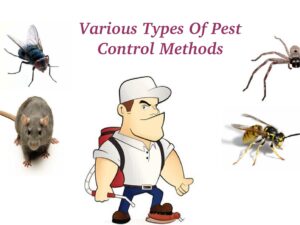
The Benefits of Pest Control for the Environment:
Effective pest control measures can have several benefits for the environment. Firstly, they can reduce the use of pesticides, which can be harmful to the environment and other non-target organisms. Secondly, they can prevent the spread of diseases to humans, animals, and plants, which can have a positive impact on the environment and human health. Thirdly, they can prevent damage to infrastructure, buildings, and other structures, leading to significant repair costs and environmental damage. Finally, effective pest control measures can help to maintain a sustainable ecosystem, ensuring that all organisms in the ecosystem thrive.
Pest control is an essential part of preserving the environment and maintaining a sustainable ecosystem. Effective pest control measures can prevent environmental damage, reduce the use of harmful pesticides, prevent the spread of diseases, and maintain a healthy environment. By adopting a holistic approach, such as Integrated Pest Management, we can manage pests effectively while minimizing the impact on the environment and other non-target organisms.
Pest control is a critical aspect of environmental management, as it ensures that ecosystems remain balanced, sustainable, and healthy. Without proper pest control measures, pests can quickly multiply, causing damage to the environment, wildlife, and human health. For example, the Emerald Ash Borer is a beetle that has caused the death of millions of ash trees across North America, leading to significant environmental and economic impacts.
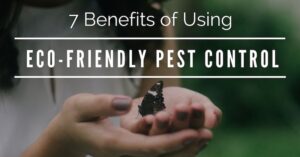
Effective pest control measures can help to prevent such disasters and mitigate the damage caused by pests. This is particularly important in areas where agriculture is the primary source of income, as pests can cause significant crop damage, leading to food shortages and higher prices.
Furthermore, pests can be vectors for diseases, which can have a significant impact on human and animal health. Mosquitoes, for example, can spread diseases such as malaria, dengue fever, and Zika virus. Effective pest control measures can help to prevent the spread of such diseases, thereby protecting the health of the population and the environment.
In recent years, there has been an increasing focus on eco-friendly pest control methods that do not harm the environment or other non-target organisms. For example, biological control methods, such as the use of natural predators or parasites, have become popular as they are more sustainable and effective in the long run.
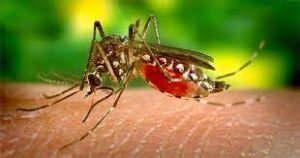
Integrated Pest Management (IPM) is another approach that has gained popularity in recent years. IPM involves using a combination of different pest control methods to manage pests effectively while minimizing the impact on the environment and other non-target organisms. The approach involves monitoring pest activity, identifying the pest, and using the least toxic method of control.
One of the critical benefits of pest control for the environment is the protection of biodiversity. Pests can cause significant harm to wildlife by destroying their habitats, reducing their food sources, and transmitting diseases. By controlling pests effectively, we can prevent the loss of biodiversity and ensure that ecosystems remain healthy and balanced.
Effective pest control measures can also prevent the spread of invasive species, which can have a significant impact on the environment. Invasive species are non-native organisms that can outcompete native species, leading to a reduction in biodiversity. For example, the zebra mussel is an invasive species that has caused significant damage to freshwater ecosystems in North America by outcompeting native species for resources.
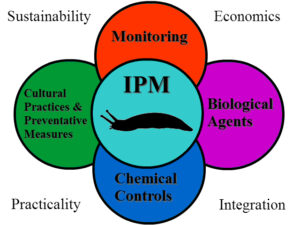
Pest control is also important in urban areas, where pests such as rats, cockroaches, and bedbugs can be a significant problem. These pests can spread diseases, cause property damage, and lead to significant costs for homeowners and businesses. Effective pest control measures can prevent these pests from becoming a significant problem, ensuring that urban environments remain healthy and safe for residents.
There are several challenges associated with pest control, including the development of pesticide resistance, the impact on non-target organisms, and the potential for environmental contamination. Therefore, it is essential to use pest control methods that are effective, sustainable, and eco-friendly.
One way to address these challenges is to focus on prevention rather than cure. By preventing pest infestations, we can reduce the need for pesticides and other control methods, leading to a more sustainable and eco-friendly approach. Prevention can involve measures such as regular cleaning, proper storage of food, and sealing entry points to prevent pests from entering homes and buildings.
Another way to address the challenges associated with pest control is to adopt an integrated approach. Integrated Pest Management (IPM) involves using a combination of different pest control methods to manage pests effectively while minimizing the impact on the environment and other non-target organisms. This approach involves monitoring pest activity, identifying the pest, and using the least toxic method of control.
IPM also involves a focus on education and outreach to promote eco-friendly pest control methods and raise awareness of the importance of pest control for environmental protection. By educating the public on the benefits of pest control and promoting sustainable pest control methods, we can work towards a more environmentally sustainable future.
Conclusion
Pest control is essential for preserving the environment and maintaining a sustainable ecosystem. Effective pest control measures can prevent environmental damage, reduce the use of harmful pesticides, prevent the spread of diseases, and maintain a healthy environment. Adopting a holistic approach, such as Integrated Pest Management, can help to manage pests effectively while minimizing the impact on the environment and other non-target organisms. By working together to implement effective pest control measures, we can ensure that our environment remains healthy and sustainable for generations to come.




